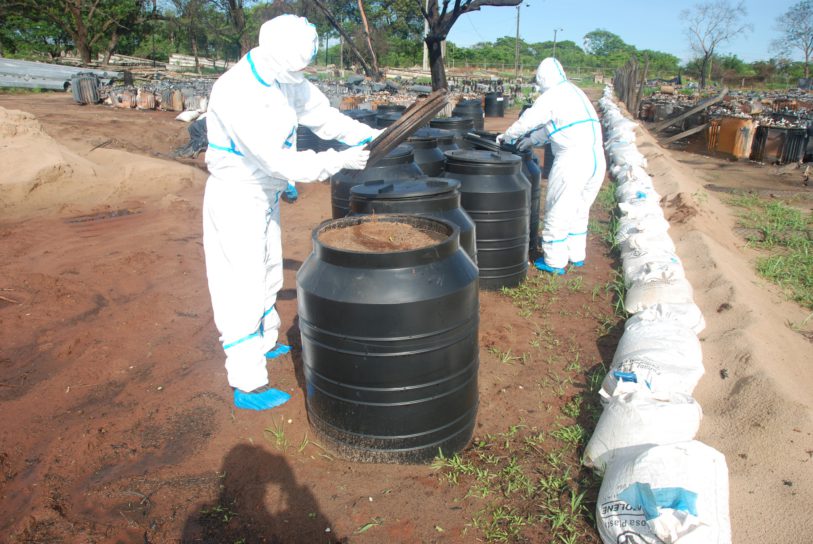The Terms of Reference  for Environmental Experts in Emergencies describes the main tasks of a deployed Environmental Expert, namely to rapidly identify secondary environmental impacts and risks following sudden-onset disasters with emphasis on those that pose immediate life-threatening risks to humans.
for Environmental Experts in Emergencies describes the main tasks of a deployed Environmental Expert, namely to rapidly identify secondary environmental impacts and risks following sudden-onset disasters with emphasis on those that pose immediate life-threatening risks to humans.
A key element of humanitarian response is the rapid identification and mitigation of secondary environmental impacts following all disasters and conflicts. The objectives of an emergency mission to address these issues include conducting a general evaluation of the risks posed by the disaster to humans and the environment. Of critical importance is identifying any gaps in the assistance being provided, and making recommendations on possible additional international assistance requirements.
In case there is a request for international assistance is received from the Resident/Humanitarian Coordinator or the authorities, the UNEnvironment/OCHA Joint Unit would forward such a request to the operational focal point of the environmental emergency response partner, in accordance with the Guidelines for Environmental Emergencies. If the sponsoring organization agrees to respond to this request, it would deploy the environmental expert (at no cost to the requesting country) with a United Nations international mission (including UN Disaster Assessment and Coordination teams).
The main task of an Environmental Expert is to rapidly identify secondary environmental impacts and risks, described below:
- Under the overall guidance of the (UNDAC) team leader, identify and assess secondary environmental hazards and impacts following sudden-onset disasters, with emphasis on those that pose immediate life-threatening risks to humans (both local communities and responders);
- As required, identify and assess medium and long-term issues that need to be addressed in the humanitarian programme cycle, for example ground water pollution, disaster waste management, use of natural resources and environmental aspects of shelter;
- When applicable, identify environmental implications of relief operations (e.g. over-exploitation of scarce water resources);
- Coordinate with disaster responders and local emergency management authorities to identify significant environmental issues in relation to the humanitarian response.
You can consult the Terms of Reference here.